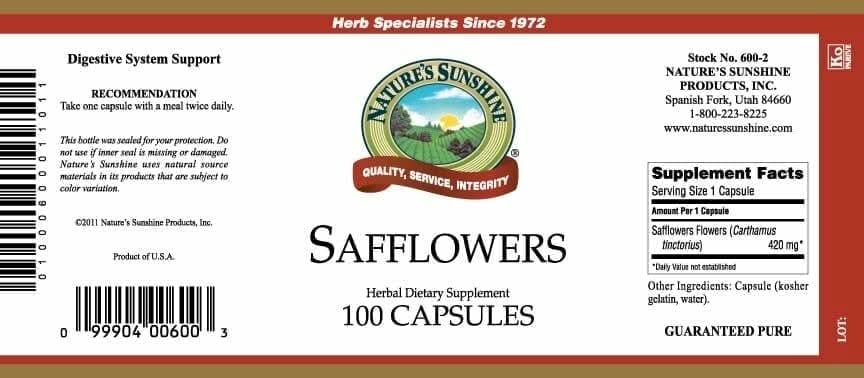The Herbs Place
Safflowers
Safflowers
Couldn't load pickup availability
The oil from the white seeds of this plant is commonly used for cooking. Safflower oil contains a high concentrate of polyunsaturates, which provide the raw material for prostaglandins, the hormone-like substances that function in cell membranes and molecular regulation.
Safflower is native to the Middle East and is also widely cultivated throughout Europe and the United States. This annual reaches heights of about 3 feet. Its shiny oval, spiny-edged leaves alternate around the stem. The plant produces profuse flowers of yellow to deep red color, which have been used for dyes to color cosmetics and fabrics.
The flowers of Safflower are also a natural nutritional aid for the digestive system. They are also known to move uric acid from the body.
The flowers are historically known to be anticholesterolemic, diaphoretic, emmenagogue, laxative, purgative, sedative and stimulant. They've been used for menstrual pains and other complications by promoting a smooth menstrual flow, and were ranked third in a survey of 250 potential anti-fertility plants.
Ingredients
Each capsule contains Safflower Flowers (Carthamus tinctorius) 420 mg.
Recommended Use
Take 1 capsule with a meal twice daily.




